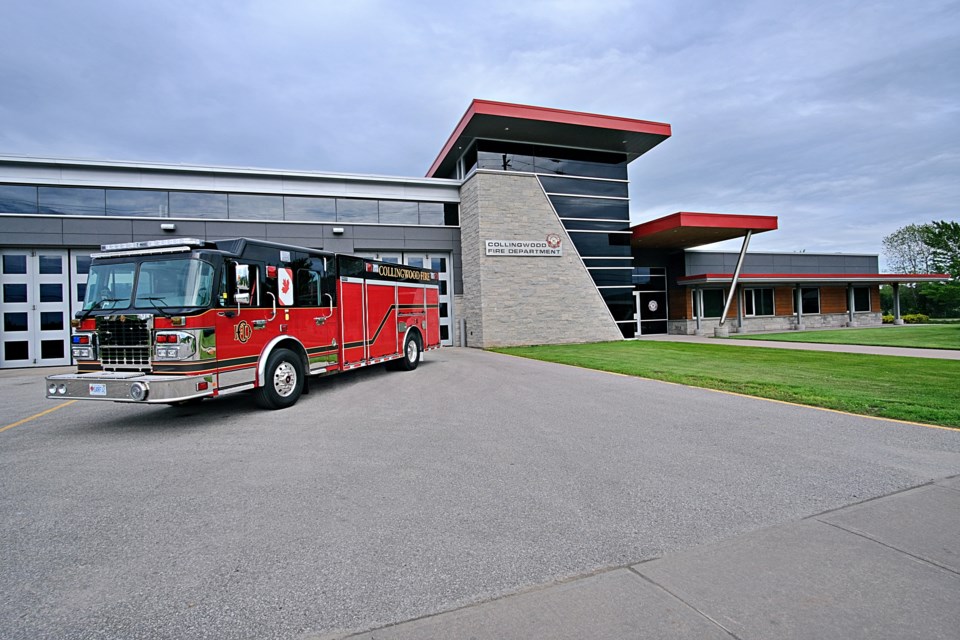Collingwood’s fire department is sticking with its emergency dispatcher in Barrie to continue an agreement in place since 2009.
Fire Chief Dan Thurman let the town’s council know he plans to sign a new five-year contract with Barrie Fire and Emergency Services for local fire dispatch. The current contract ends at the close of 2023.
The communication branch of Barrie Fire and Emergency Services started in 1984 now provides 911 dispatch services for 21 municipal fire departments representing more than 800,000 residents within Simcoe, Dufferin, and Grey Counties, the District of Muskoka, and York Region.
“Over 23,000 emergencies were dispatched in 2021,” wrote Thurman in the staff report he brought to the council committee of the whole meeting last week.
Thurman explained to councillors that a Collingwood resident who calls 911 would first be connected to an operator in North Bay at the Ontario Provincial Police Provincial Communications Centre. If the caller specifies they need fire services, they’re routed to the Barrie Fire communication dispatch centre.
Collingwood Fire Department responds to fire calls, and also responds to more urgent medical calls such as a report of someone having a heart attack, an overdose, or a person found with no vital signs.
Thurman explained to CollingwoodToday in a phone interview that the department is an “all-hazard response,” meaning they respond to active emergencies.
A 911 call for a medical emergency would start at “level A” with things like shortness of breath or a serious cut or injury. Those would go to paramedics only. The Collingwood department responds to level B and above, which would include car crashes, water and ice rescue, public service calls for someone who is stuck, hazardous materials, and etc.
The levels of service provided by municipal fire departments is determined by municipal councils, based on recommendations by staff and the fire chief.
Often, firefighters are called to a scene in addition to EMS and/or police.
“Sometimes you do see duplication of services, but we all do have our place for each call,” said Thurman.
Of course, the response begins with the dispatch, which is why Thurman said the department will be continuing its contract with Barrie Fire and Emergency Services communications division.
Thurman’s report notes Barrie’s dispatch staff is certified in compliance with the Fire Protection and Prevention Act and the centre meets the national standard for call handling times.
According to the National Fire Protection Association, 90 per cent of emergency alarm processing should be done within 64 seconds, and 95 per cent of emergency alarm processing should be completed within 106 seconds.
The National Fire Protection Association also recommends dispatchers be trained fire personnel so they ask appropriate questions during the 911 call and can send the correct equipment and personnel to the scene.
Radio traffic and telephone conversations are recorded for the purposes of public inquiries or inquests if they occur.
The Barrie dispatch centre also has a live backup centre at 110 Fairview Road, and additional full-service desk positions at 155 Dunlop Street West to offer assistance during times with high call volumes and during weather-related events.
Aside from Barrie Fire, the only other fire dispatcher in the county is in the City of Orillia through the Orillia Fire Department.
According to Thurman’s report, the cost of fire dispatch services is broken down per capita. Over the next five years, the price of dispatch per resident is $3.33 in 2024, and it will rise to $4.45 in 2028. Additional per-capita costs are added if the population doubles with seasonal residents.
“Given the high level of training necessary, as well as the need for ongoing skills upgrading, it is more cost-effective to contract dispatch services with Barrie, than to create these services in Collingwood,” stated Thurman’s report to council.
Canada adopted the 911 emergency number in 1972, with London, Ontario being the first city in the country to implement the system, which began in 1968 in the United States. However, it was Winnipeg that first adopted a three-digit emergency number, using 999 for emergencies as early as 1959.
The push for a nationwide number for reporting emergencies came from the National Association of Fire Chiefs in 1957.
